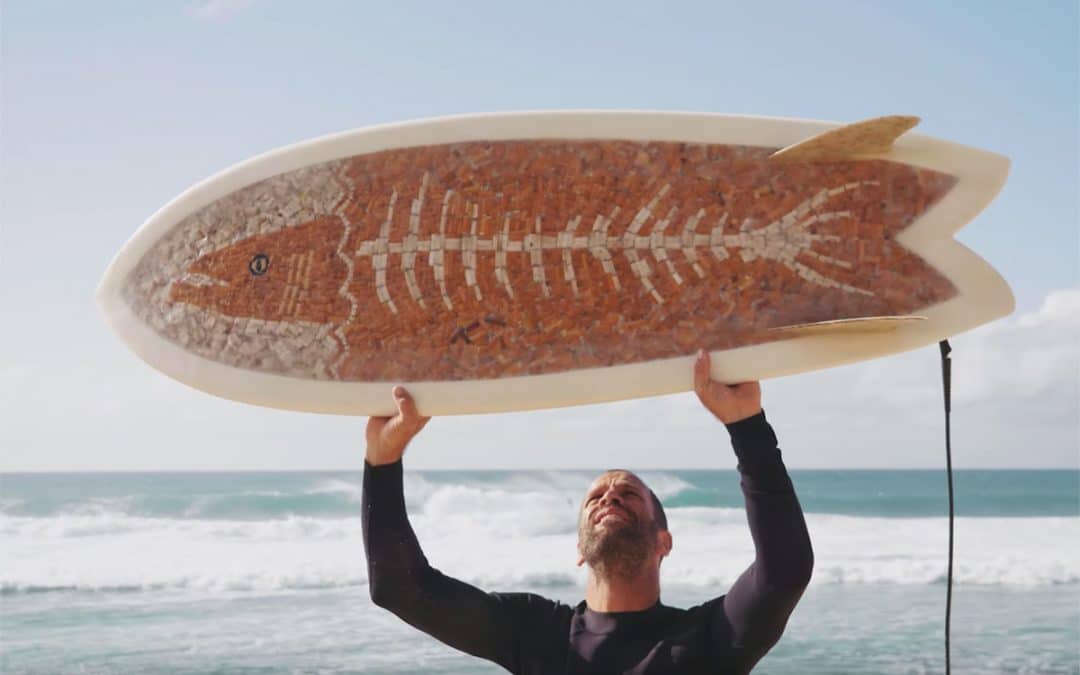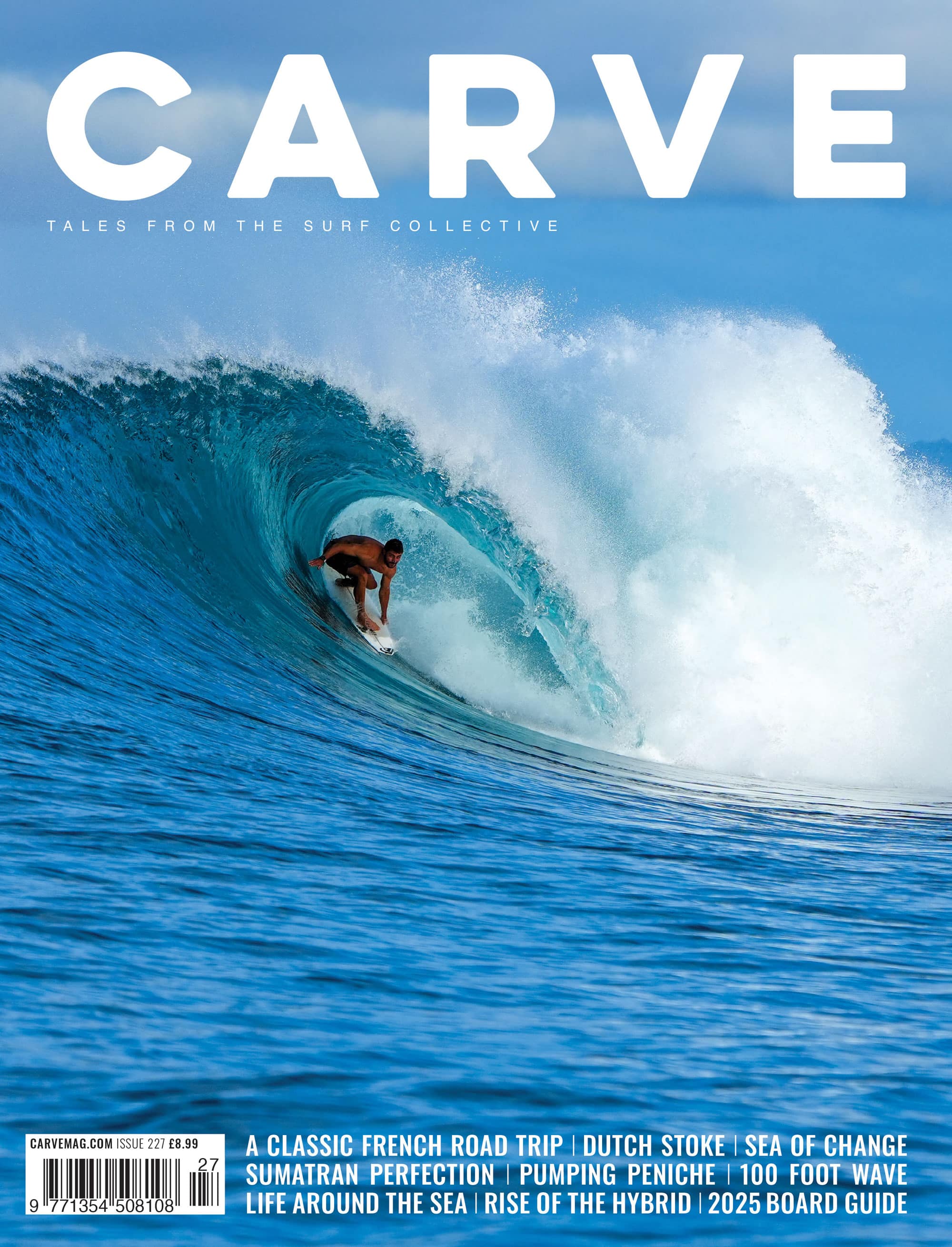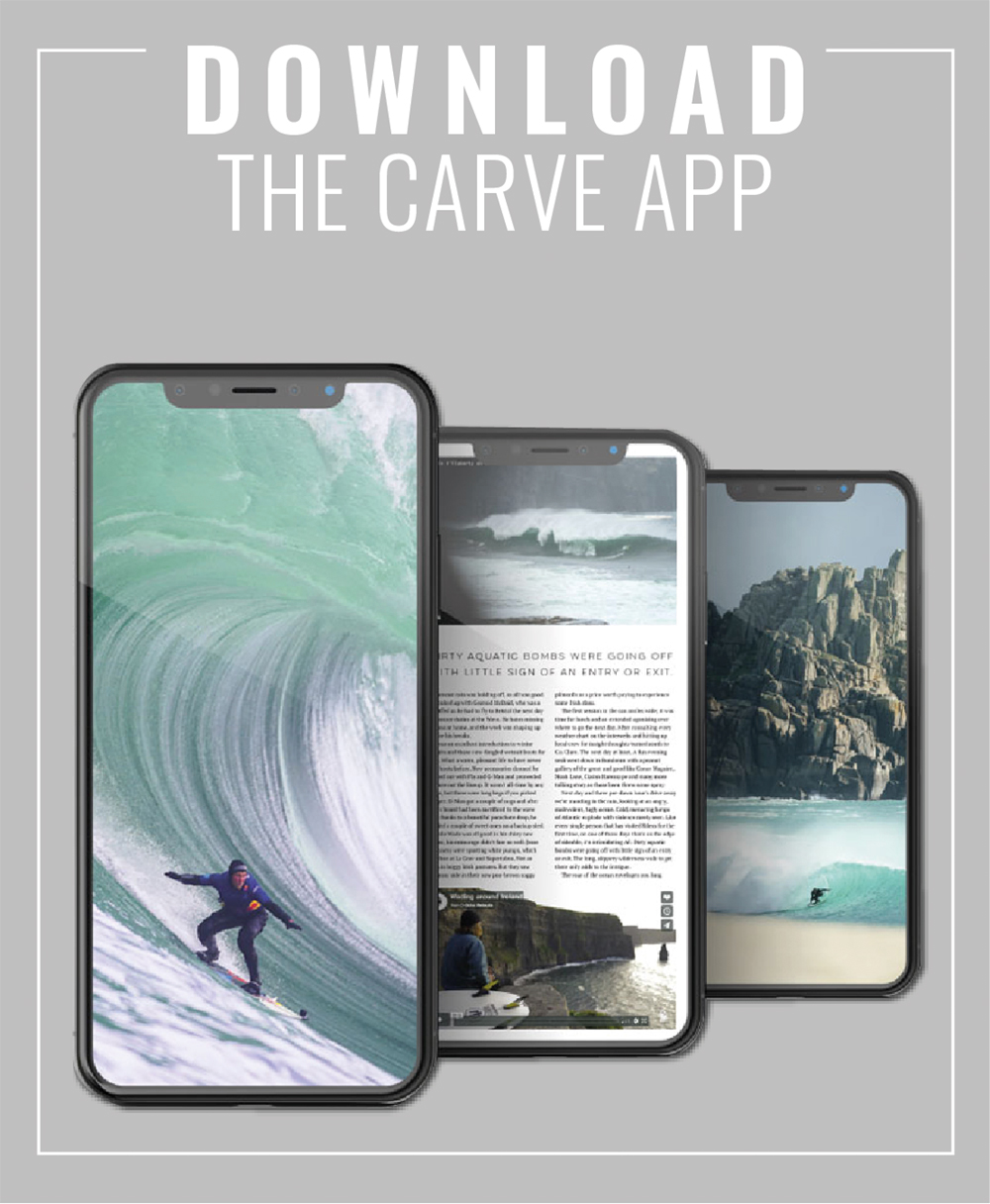
The Cigarette Surfboard Interview & Jack Johnson.
Jack met The Ciggy Board Boys aka @thecigarettesurfboard at the International Marine Debris Conference in San Diego in 2018. Jack had heard of the project but when they mentioned they were working on a few more boards, he didn’t hesitate to invite them out to Hawai’i… fast forward a year, and those words became a reality. Thousands of Cigarette Butts picked up off the beaches of California have turned into a few functional Cigarette Surfboards. An awesome conversation with Jack highlights the role we play as surfers (and non-surfers) to be better stewards of the sea.
Check out the Interview we did withThe Ciggy Board Boys last year below.
Interview and photos by Steve England
Taylor Lane and Ben Judkins are from California. They hit the headlines last year after they spent the summer picking butts from the beach, parking lots and local paths to make a surfboard for the Surfrider x Vissla “Creators & Innovators Upcycle Contest” using 10,000 cigarette butts. The board and subsequent publicity has led to a new journey and the pair are now creating an environmental surf film. The film questions the mentality of littering cigarette butts, how this largely represents our single-use plastic culture and its effects on the ocean via the ‘flick’, the action used to dispose of butts out of windows and onto beaches. In July they visited the UK, Steve England went to find out more.

So guys what are you doing in Cornwall?
Ben: We’re here meeting people, filming and exploring Europe to find out what communities, companies and NGOs are doing to fight ocean plastic pollution. We came to Cornwall because we know there’s an interesting surf culture here with organisations like Surfers Against Sewage and companies like Finisterre who are really trying to address ocean pollution through community activism as well as material science and other developments.
Why cigarette butts?
Taylor: We built this surfboard for a Surfrider competition that challenged people to make surf craft out of upcycled materials. We chose fag butts because they’re the most littered item in the world and the most consistently found piece of trash on beaches around the world; there are 5.6 trillion littered every year. Even if they are flicked away from the ocean, they still find their way to the ocean.
How long do they take to decompose?
Ben: Because they’re made out of plastic cellulose acetate they practically never decompose. It’s a filament fibre that breaks down into microfibres and as they do so they leech out all the toxic chemicals they are supposed to filter out when people smoke them.
So this motivated you to use cigarette butts?
Taylor: Yes. What we did was upcycle foam blocks from Marco foam, joined them together, cut the shape, then on the side we lay out a piece of fibreglass, placed the butts on it and we have a press to make them into the layer. Then we are left with the sheets which we place on the recessed foam and then double two ounce glass top and bottom. Because the cigarette butts are plastic fibres, the resin and fibreglass absorbs them and the butts becomes part of the fibreglass. They are now actually structural rather than before just being in there. We think this makes them stronger than most boards, certainly little bit heavier, but with the retro trend and shapes that we’re replicating that doesn’t matter too much. Who knows they maybe lighter than some people are used to.

So this board surfs but primarily you are using it as an instrument to engage people in conversations about the environment?
Taylor: With my design background I like to emphasise functional arts. I think what this piece does not only helps people reflect on what’s happening in the environment, as all of the cigarettes were picked off the beach in Los Angeles, but pushes us to think how we can make things that also work. I think it’s important that it’s also functional and takes it back to surfing, so hopefully some good surfers can do some fun stuff on it.
Has it opened up any doors to people in high-powered positions who can direct change?
Ben: We took the cigarette surfboard into the state capital in California onWorld Oceans Day where we were invited to speak. We went around with a lot of other ocean conservationists and lobbied some of the politicians, Congress people and Senators that might not have been fully aligned with what we were doing. But once they saw the board in person it just clicked. They were like, “ We hate seeing cigarette butts on the beach and on the streets. This is obviously serious problem so maybe I will vote a certain way on the next bill.”
There are two bills currently in California that are being proposed to be put onto the ballot. One of them bans the sale of single use plastic filters used in cigarettes and the other bans smoking on beaches. So we really saw that day the power of the board itself being this visceral, moving piece to sway opinions.
Taylor: I think what this project has pitched us forward on a journey. We made the board for the contest, then a local newspaper published the story and all of a sudden we’ve “gone viral”. So we started to be invited to lots of community events and government offices. And what we found out through going to these events is that the change starts at individual and community level. When we go to meet politicians, those people are there because people in their communities voted for them. And those politicians want those people to remain happy. So it’s kind of come full circle to us in that even though this problem is so daunting and vast and we really want to push industry and politics to be the change. Those people are only going to take action if certain communities start standing up and demanding change.

So over here right now there’s a huge movement against single-use plastics. Are you experiencing that in the US?
Ben: Yes, and I think that goes back to the first question of what we’re doing here. We noticed the UK is a prominent leader in addressing this. I mean we still go to the grocery store and see all the stuff in plastic, but also know you guys seem quite serious about what you doing here. I think that message is resonating in the States as well. I mean the state of Hawaii takes the brunt of this being stuck out in the Pacific and just filtering plastics. It’s insane but really what makes this problem that we can tackle is that we can see plastic. When we get in to climate change you can’t see the gas that causes it, you can’t see carbon dioxide, so it’s an arguable point, but the plastic on the ground isn’t. So I think addressing and solving this problem first is more attainable. And it’s why towns, cities, nations and governments are looking at this and saying this is not only something we need to do but can do. Because it affects people and industries from tourism to fishing to the health in the community.
Taylor: Plastic pollution is a global issue with no borders and that’s what we find important with this film. To represent what is happening around the world in terms of action, in terms of solutions and the impact it has on communities around the world.
And I think another thing is us as humans reconnecting with place we live on, with the earth, and learning what is ‘away’, when we throw things ‘away’. Where is ‘away’? Because it’s not just the trash bin, it’s not just the recycling bin. There is a whole series of events that takes the plastic to it’s final resting place whether that’s a landfill, or to a recycling centre or back into the sea. So we really need to reconnect with the earth and find a more harmonious balance between the way we give and take the planet’s resources and the ocean. And that’s where it comes back to surfing too. As surfers we have this obligation to be leaders as custodians of the sea and do our part, seeing as we are on the frontline. We see plastics and pollution in our waters every time we go out for a surf no matter where we are in the world. It’s on the tideline, washing up on beaches or in the lineups. So we feel we have a huge responsibility as surfers to find creative solutions to address the problems and to be active and engaged in return for what we take from the sea.

So for me the whole plastic thing is on a roll now but it is just the tip of a huge problem which is going to have to lead to a change in social behaviour, corporate behaviour and politics with nations acting together, economies acting together and to a reform of our view of capitalism. When you are speaking to the politicians are they getting bigger story or are they still focusing on the plastic?
Taylor: We haven’t had a huge experience with face-to-face politicians but we both come from the world of non-profits and standing up for social and environmental things. But you’ve got to start somewhere and it’s like clean your room before you clean your house. Plastics are something we can see and something we can do something about so this is really our emphasis in getting communities engaged. If you look at the smoking bans that happened in the States, they didn’t start at state level or at federal level, they started in small communities who said ‘ We aren’t going to have this here’. I think when you look at these environmental crisis if we really all spent our time focusing on one subject at the time we would be to tackle them better. The saying goes “keep the people divided to rule” keep them fighting with themselves and we can still stay on the top. Revolutions and reforms take a long time but if we can band together and tackle one thing at a time building momentum and political power through community we can effect change.
Ben: You mentioned capitalism and ultimately we need to shift from our global economic structure and not focus on exploiting resources, but rather managing them. I think that’s a huge issue. With any capitalist system it is all about profit and it says that scarce resources are something to exploit and extract and continue to take and not really give back or planning the long term outcomes. It definitely also has to do with behavioural change. The mentality and mindset of ‘the flick’ is symbolic of the out of sight, out of mind mentality and ideology. We are hurting ourselves in the long run.
Taylor: From a design perspective we look at problems differently, we have to see the opportunities. When you look at the charts that say there are going to be three billion more people in the next 50 years and we are projected to consume so much more, you just think where the hell is all that shit that we make going to go? It’s already washing up in the remotest places on earth. But when you look at the redesign of not only our economic structure, and the new material sciences you can see huge opportunities to create more circular economies, and not just be caught in this linear ‘ create, consume, throwaway’ path. We can create better materials reuse and reduce. These terms have been thrown around for so long but now it is coming full circle and we have to do it.
I mean the earth will go on and on. It’s been here for a long time. Humans have just been a blip on the timeline living on it. So ultimately it’s a question of society. Do we want to continue to sustain human life on the planet and evolve our thinking, or not? We’ve evolved as human beings but now it’s time to elevate and practice how we evolve humanity on the planet. If we cease to do that, then the earth will go on and humans will eventually fade out.

Ben: I think surfers and being in the ocean, seeing this issue plastic pollution first hand, you can’t not get it. You see you see it every time you go out in the surf. So I do think the surf community and industry has a big obligation and opportunity to do more. The way we feel should be backed by more action in preserving the ocean and protecting the waves and places we love. There is a lot of really good stuff going on trying to shift to better practices but there’s a lot more to be done.
Taylor: Bringing it back to surfing we talked to Tony Butt and his analogy was when you look at the evolution of humans 99% of the time up until now we’ve been hunter gatherers, so surfing this is completely cerebral experience where you have to do come back into your hunter-gatherer skills and that is the connection we have and share more than people who aren’t surfers. We understand tides, the winds, the direction of the swell and all these intervals, all the science and not only that but everything you know comes down to this finite moment, a few seconds you get to express yourself and be in balance with nature. And it’s a really unexplainable feeling. What we’re doing to the ocean is not a good feeling, to see plastics and chemicals and all these other things washing up in the places we called home. Society loves outcasts, and surfers are outcasts, so we have an opportunity to share our way of thinking and influence society for good, not just to have surfing be another exploited sport where we’re solely looking for self pleasure. We have that level of giving back. Surfing demands a standard of respect and unwritten rules of the lineup. The fundamentals of surfing actually go hand-in-hand with the environmental movement. Because we all know you have to respect what is to be feared, which is nature. And if you don’t respect the ocean, soon or later it’s going to give you a big right hook.




